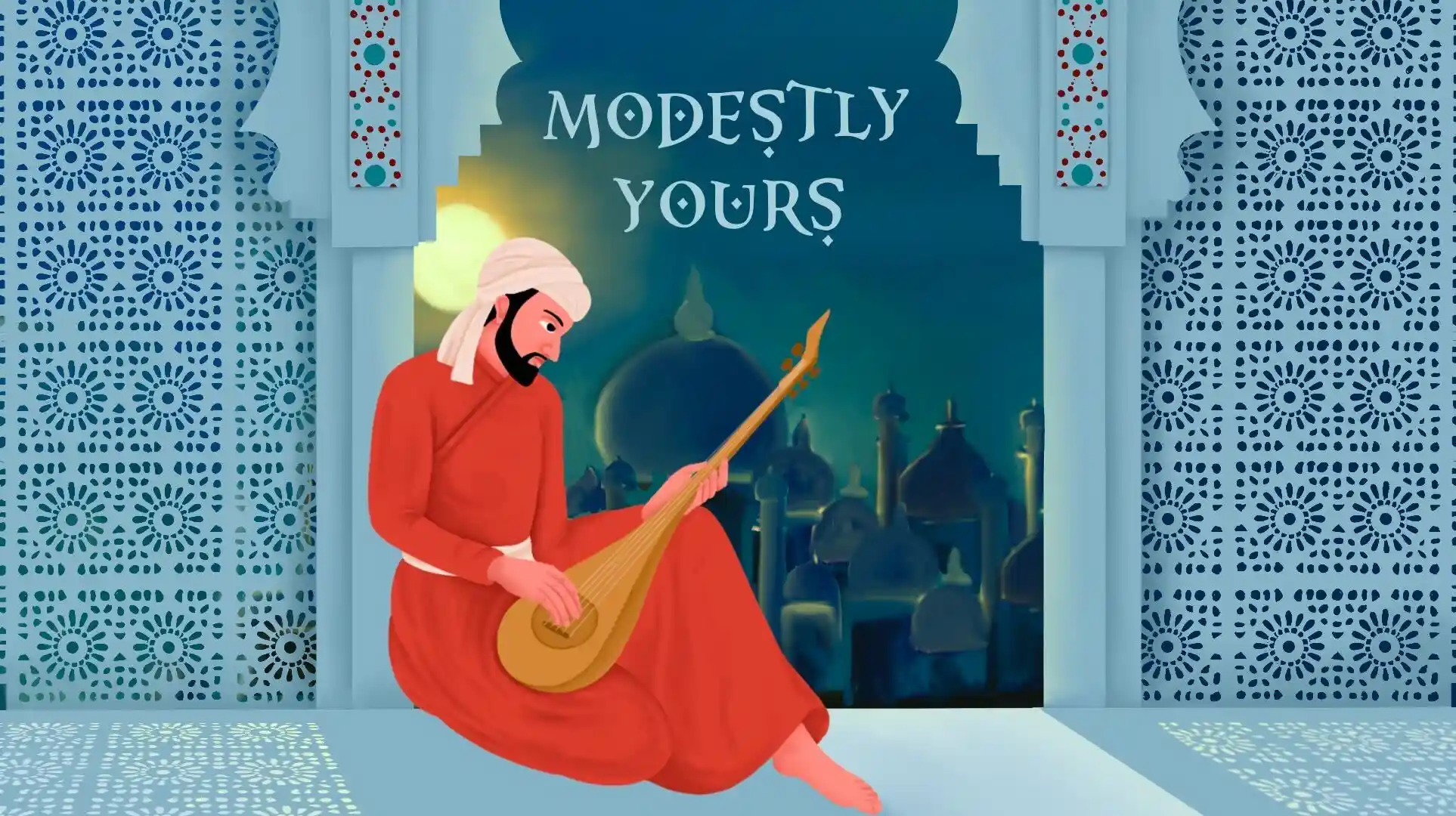Modestly Yours
Amidst the thick smell of incense smoke emanating from the many ‘jaalis’ that honeycomb the Dargah of Hazrat Nizamuddin is a quiet, almost inconspicuous shrine of a man — a Sufi mystic, singer, musician, poet and scholar who spent his life in the Delhi Sultanate.

Illustrated by Gowri Suresh: Visual Storyteller at ThisDay
Amir Khusrau (1253-1325), whose Chhaap tilak… echoes through the imposing walls of Red Fort, Old Fort and Humayun’s Tomb even today was a prominent figure in medieval India because of his immense contribution to Indian classical music. At a very young age, he got introduced to Hazrat Nizamuddin Auliya — whom he considered his spiritual guide and mentor. An IndoPersian by birth, Khusrau also served as a royal poet in the courts of many Delhi Sultans.
He is credited with developing khayal and tarana styles of music. His ability to weave Bhojpuri, Urdu and Hindi elements with Persian became a distinguishing feature of his style, which was later called Hindvi. His qawwalis — a form of Sufi Islamic devotional songs are akin to anthems at Sufi dargahs. He was amicably called tooti-e-Hindustan (parrot of Hindustan) because of his prolific works. In “Qiran-us-Sa’dain” he talks about communal harmony between Hindus and Muslims. Khusrau was an ardent proponent of the ganga-jamuni tehzeeb —a beautiful amalgamation of the myriad religious cultures that became the hallmark of Indian diversity.
Khusrau’s contribution was not just poetic or literary though. Under Sultan Aalauddin whom he served, he exerted a major influence through his spirituality and mysticism to eradicate unethical practices polluting society at that time.
Amir Khusrau was often called Amir Khusrau Dehalvi, for he considered himself a true “dilliwala” — often yearning for the city through his poems and comparing it with the Gardens of Eden and arsh — the highest heaven as per Islamic literature.
It is both ironic and beautiful that a man who revolutionised Hindustani music should lie in the shadows of his mentor’s grave so silently, so modestly. For a visitor who is passionate about poetry and Sufi music, a visit to dargah Hazrat Nizamuddin in South Delhi, finding this hidden gem is a tryst with serendipity.
Khusrau darya prem ka, ulti wa ki dhaar,
Jo utra so doob gaya, jo dooba so paar.
English Translation:
Oh Khusrau, the river of love
Runs in strange directions.
One who jumps into it drowns,
And one who drowns, gets across


